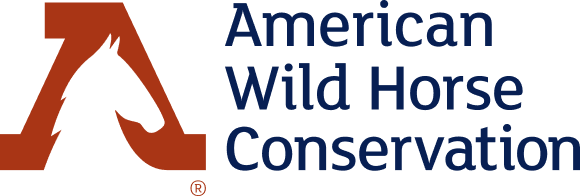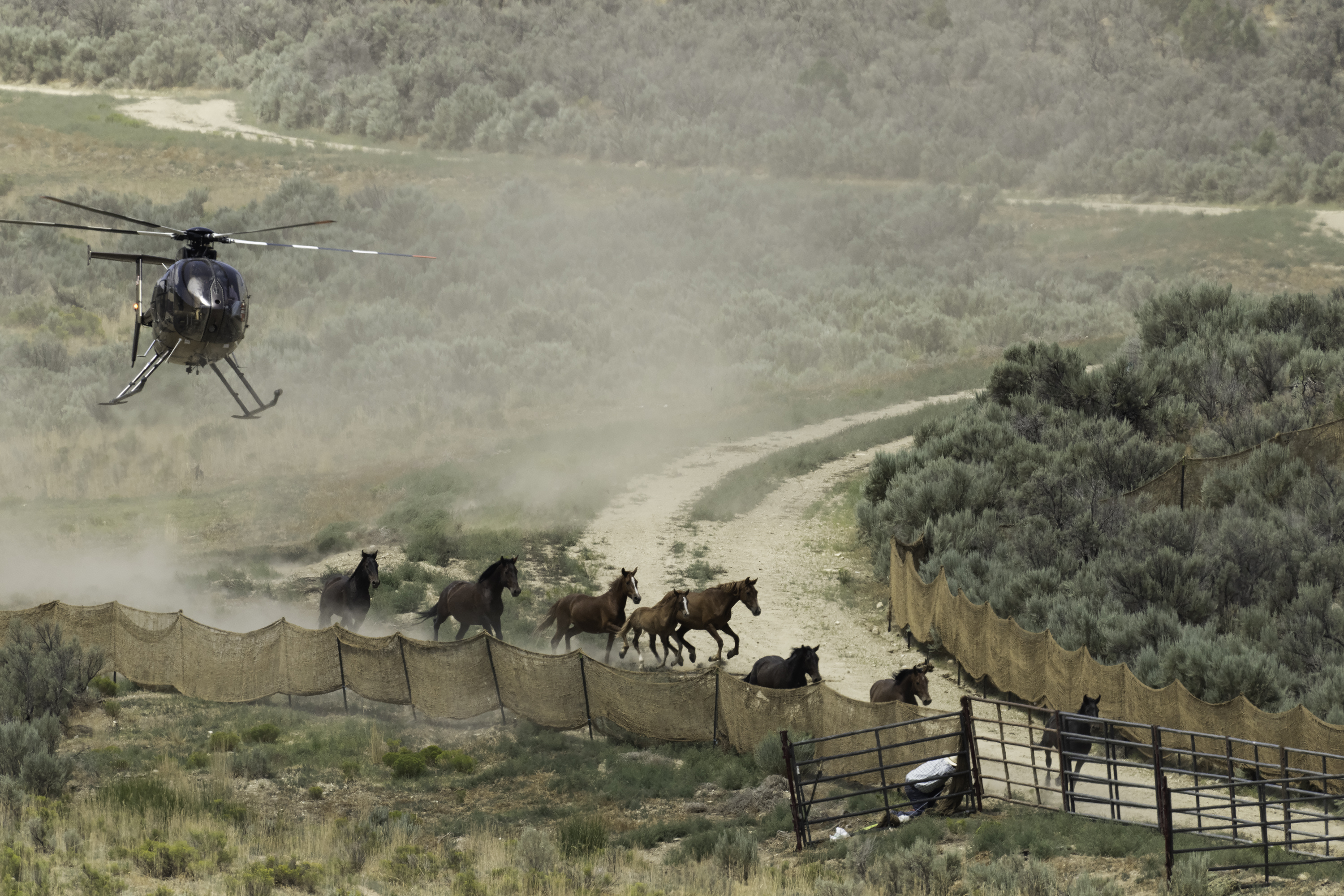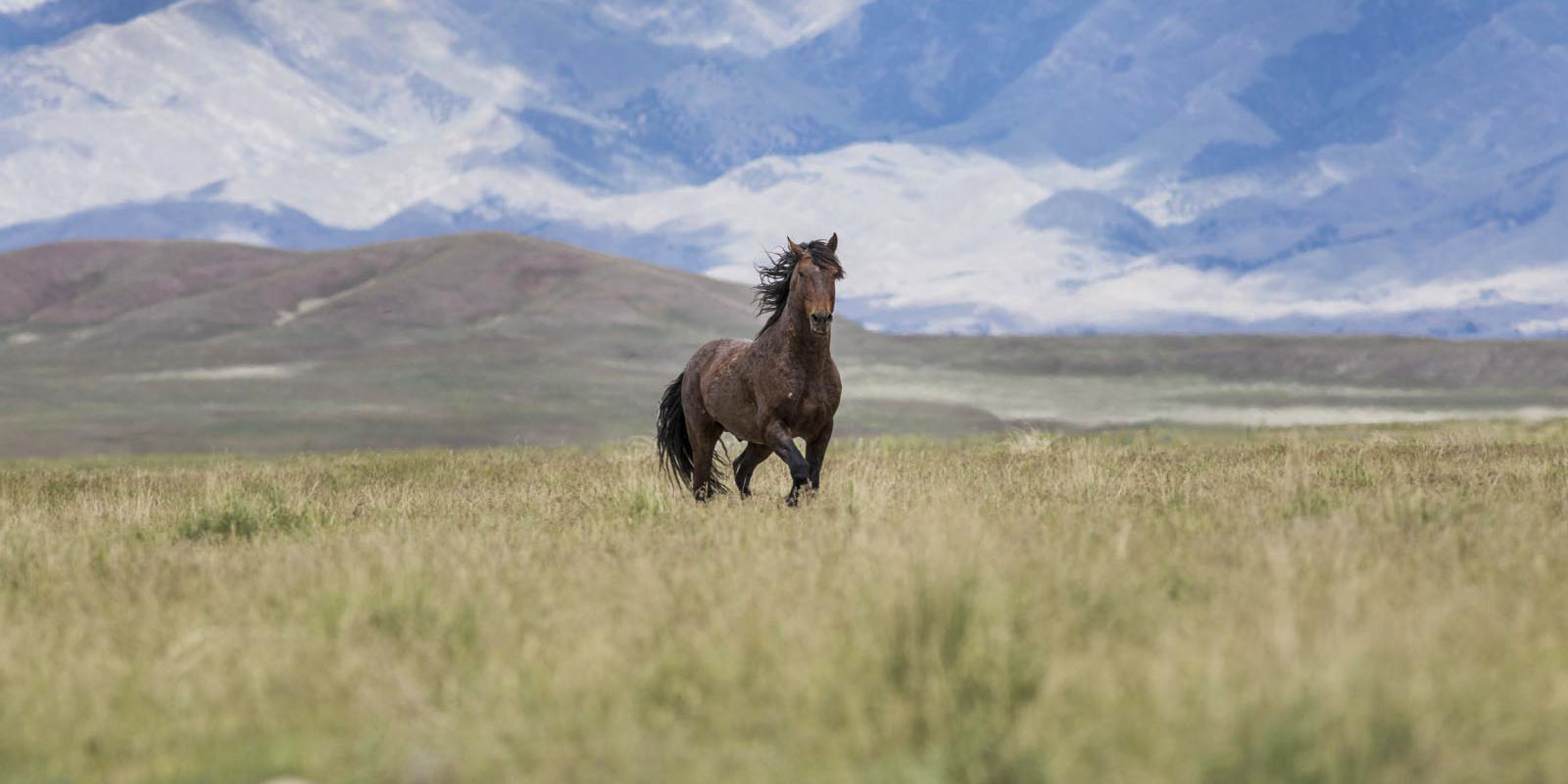WASH. D.C. (March 26, 2024) – The nation’s leading wild horse conservation NGO is calling the Bureau of Land Management's 2024 wild horse and burro population estimates and its future management plans as proof of a failed management system. American Wild Horse Conservation criticized the agency for promoting mass roundups without disclosing the consequences, including 64,000 wild horses and burros confined in holding facilities and potential taxpayer costs exceeding $1 billion.
In response, the group is renewing its call to Congress to strengthen support for sustainable, in-the-wild measures to reduce removals and warehousing of wild horses in captivity.
In a March 25 news release, the BLM released its 2024 wild horse and burro population estimates ranging between 63,000 and 85,000 animals on the range, a reduction from 2023 levels. The release states that over the last three years, the BLM has removed 50,000 of these federally protected animals from the range and intends to remove 20,000 more this year. The BLM release also states its goal of adopting or selling 10,000 captured wild horses and burros this year but does not disclose that its controversial cash incentive adoption program has sent “truckloads” of these iconic animals into the slaughter pipeline.
“This is not sustainable conservation of these national icons,” said Suzanne Roy, Executive Director of AWHC. “It’s time for Congress to require humane and less costly in-the-wild methods that preserve the freedom of America’s federally protected wild horses.”
Roy noted that recently published science establishes reversible fertility control darting programs as viable and effective alternatives to traumatic and costly helicopter removals. Congress has repeatedly directed BLM to prioritize in-the-wild conservation by prioritizing fertility control, and over the last two fiscal years has allocated over $20 million to support that approach.
While the BLM’s news release asserts that the agency has increased the use of fertility control vaccines, the number of treatments decreased in 2023 as compared to 2022, and the agency continues to spend just one percent of its $142 million budget on reversible fertility control programs. Meanwhile, over 70 percent is spent to round up and stockpile wild horses and burros in holding facilities.
“Continuing costly, large-scale helicopter roundups is a flawed, excessive, and inhumane policy that places an unmanageable burden on an inadequate holding and adoptions system and on U.S. taxpayers. The program also comes at a high cost to these wild, free-roaming animals who are captured, traumatized, robbed of their freedom, and will spend the rest of their lives in captivity, or worse, will end up at slaughter plants in Canada and Mexico.”
AWHC advocates for a new conservation approach that upholds the 1971 Wild Free-Roaming Horses and Burros Act, which protects these animals as living symbols of the spirit of the West and mandates that they be considered as an “integral part of the natural system of the public lands.”
AWHC is setting the standard for humane conservation with models for in-the-wild solutions to protect wild horses and their habitats. AWHC’s land trust operates a 3,300-acre preserve in Nevada that is protecting habitat for the Fish Springs wild horse herd and abundant other wildlife. AWHC also operates three wild horse fertility control programs, including in Nevada’s Virginia Range where the effort is now the largest wild horse fertility control program in the world.
About American Wild Horse Conservation: American Wild Horse Conservation (AWHC) is the nation's leading nonprofit wild horse conservation organization, with more than 700,000 supporters and followers nationwide. AWHC is dedicated to preserving the American wild horse and burros in viable, free-roaming herds for generations to come, as part of our national heritage. In addition to advocating for the protection and preservation of America's wild herds, AWHC implements the largest wild horse fertility control program in the world through a partnership with the State of Nevada for wild horses that live in the Virginia Range near Reno.
###


